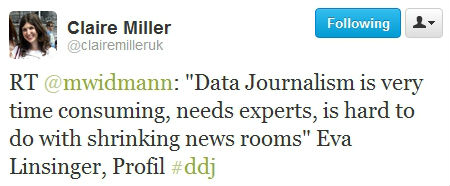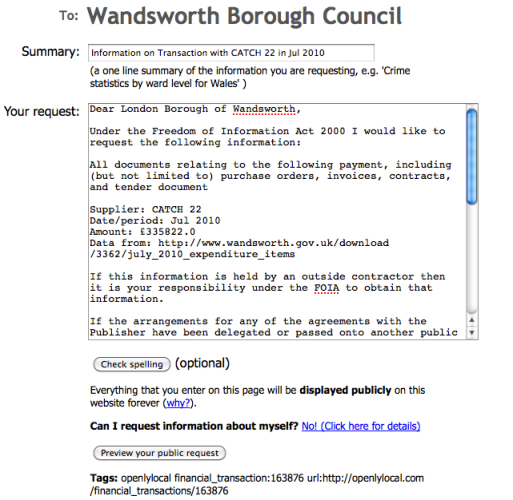Is data journalism ‘time consuming’ or ‘resource intensive’? The excuse – and I think it is an excuse – seems to come up at an increasing number of events whenever data journalism is discussed. “It’s OK for the New York Times/Guardian/BBC,” goes the argument. “But how can our small team justify the resources – especially in a time of cutbacks?”
The idea that data journalism inherently requires extra resources is flawed – but understandable. Spectacular interactives, large scale datasets and investigative projects are the headliners of data journalism’s recent history. We have oohed and aahed over what has been achieved by programmer-journalists and data sleuths…
But that’s not all there is.





